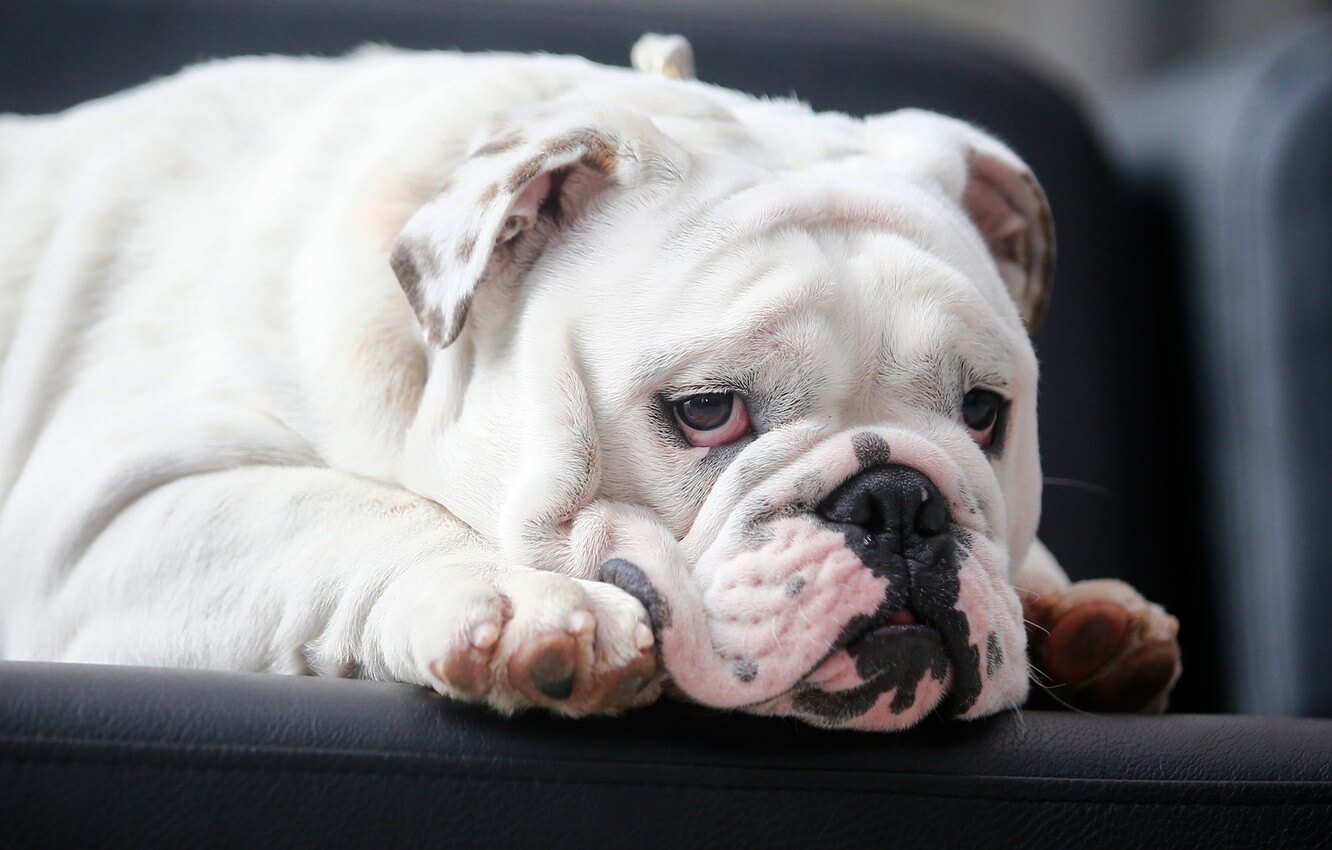Your dog’s digestion is important as it says a lot about his or her health. Most owners are quickly concerned with diarrhea, but with constipation, they should also think about whether something is wrong. Not every time the dog is constipated does it need to be presented to a veterinarian, but it should be observed. Persistent digestive disorders can result in permanent damage.
Why is My Dog Constipated?
- Constipation can have many causes, most often it is a result of a poor diet.
- The dog’s digestion can be influenced and supported by humans.
- Food that is high in fiber helps the dog to pass the poop.
- In most cases, constipation doesn’t require a visit to the veterinarian.
When Does the Dog Become Constipated?

Constipation is very uncomfortable for the dog. It can be observed when going for a walk when the dog sits down in the typical crouching position several times but does not drop any feces. Then he suffers from constipation. It can also happen that a small amount can be deposited, but it is then very hard and dry. It can also lead to what is known as pseudo-diarrhea, in which the dog sheds mucus and blood.
In the case of temporary indigestion that goes away on its own, the veterinarian does not need to be consulted. However, if the dog is constipated for a long time, the veterinarian should be consulted. A chronic digestive problem that is left untreated can cause permanent damage. The large intestine can become overstretched, and dogs can also suffer from permanent pain that occurs when loosening them. This usually results in an unfavorable cycle. The dog delays the defecation more and more, which causes more and more pain. More and more water is withdrawn from the manure, it becomes drier and drier, and there is more and more manure, which also promotes constipation.
What are the Causes of Constipation?
If the dog suffers from acute constipation, it is usually because he has eaten something wrong. This could be too many bones, paper, hair or pieces of rubbish or toys. If foreign bodies are swallowed, there is a danger of constipation and a dangerous intestinal obstruction. If a dog does not move enough, constipation can be increased. The intestines become sluggish due to a lack of exercise, the digested food is not optimally transported. The congestion occurs in the large intestine, where it becomes more and more solid. Long walks or encouraging the dog to run around can help here.
Digestive disorders do not always have harmless reasons. In the worst case, it can hide serious diseases that are also responsible for it. This can be a disease of the thyroid gland, an intestinal or anus tumor, or an enlarged prostate. Emotional problems or some medications can also have a negative effect on digestion. Pain relievers, sedatives, and antiallergic drugs can cause constipation in dogs. It gets serious when the cause is a large piece that the dog has swallowed. This can lead to an intestinal obstruction that almost always has to be operated on.
Can Something Be Done About Constipation?
There are many different causes that can be responsible for constipation. The dog should therefore be observed whether he is behaving strangely or differently than usual. Dogs usually show in this way that they are not feeling well or that they are in severe pain. Furthermore, other symptoms should be observed. Flatulence and sometimes colic are part of it, as well as abdominal pain, loss of appetite, vomiting, and listlessness. A typical sign that the dog’s anal glands are inflamed is when the dog’s rear end slides across the floor. The faster serious triggers are identified and treated, the more successful the treatments are.
What to Watch Out for in Case of Constipation?
- The dog shouldn’t get too many bones or too many bones. The mistake is often made, especially with barfish.
- Dogs should drink enough. Freshwater should always be available. This is even more important when the dog is given dry food.
- In the case of acute constipation, you can add some milk, flaxseed, or bran to the feed. This helps soften the feces in the intestines. The dog can shed it more easily.
- Lactose or psyllium husks can be used as gentle laxatives. However, the treatment should be discussed with a veterinarian.
Digestion can be supported by a diet rich in fiber and high in crude fiber. A high-quality food that is optimally tailored to the needs of the dog can help. A teaspoon of oil with a high percentage of paraffin oil added to the feed in the morning can also help. If in doubt, a teaspoon can be given in the afternoon or evening. Dogs need sufficient exercise and long walks. The digestion can also be stimulated by dog sports appropriate to the species. Obesity is not only bad for digestion, but also for the whole dog. A reduced-fat special feed can be helpful here.

